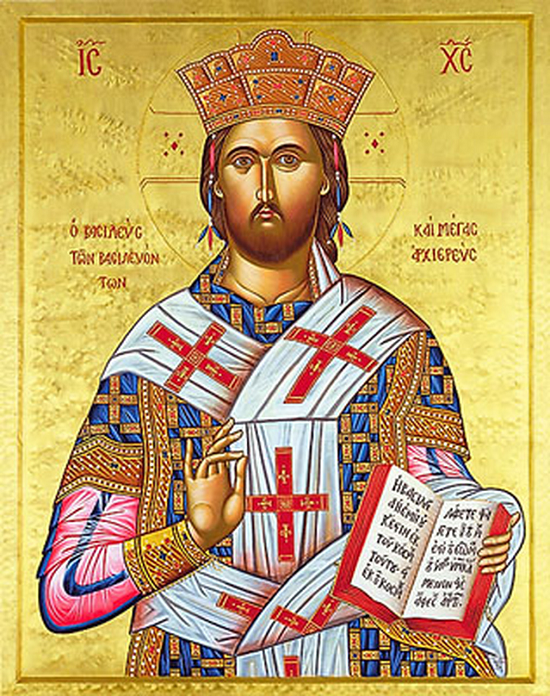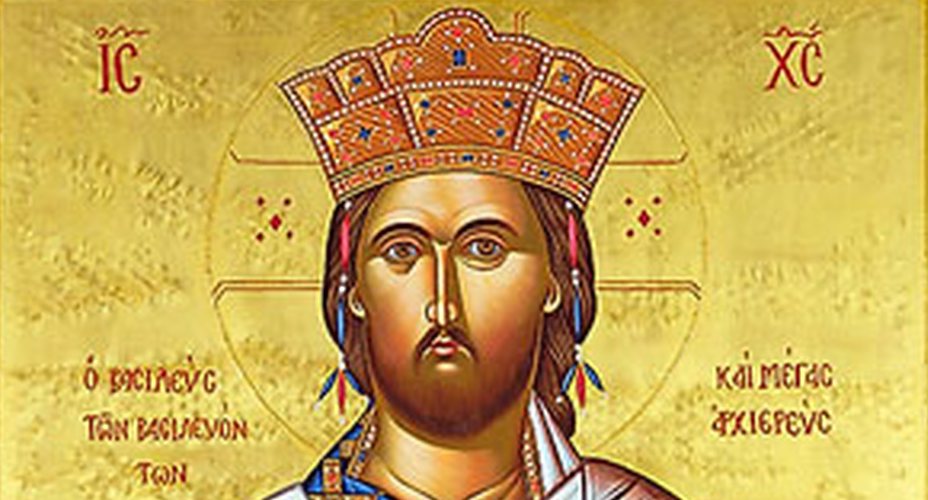The Truth about Christ the King
Christ the King Scripture Readings

As if there could be any doubt about the matter, John, at the climax of his gospel—the passion, death, and resurrection of Jesus—presents him to us in this unique dialogue with Pontius Pilate as adamantly refusing to politicize his role and mission. “Christian Nationalists” take note. It was the chief priests, scribes, and Pharisees who encouraged the people in their wanting the Messiah to be an anointed king in the likeness of King David, who would deliver Israel from the domination of its enemies and restore it to political autonomy under the rule of that messianic leader. It was the Romans—particularly Pontius Pilate, the procurator—who were determined to keep the peace and suppress any such political aspirations held by the people of this restless and rebellious territory.
It’s interesting how, when it came to Jesus of Nazareth, the roles of these religious and political leaders were ultimately reversed. Throughout his ministry, Jesus castigated the chief priests, scribes, and Pharisees because their obedience to the Law of Moses was superficial and lacked a heartfelt commitment to God’s anawim, the little ones whom he loved. Jesus refused to let them get away with superficiality and insisted that they adopt the spiritual attitudes that should have formed the basis of their external religious practices. People can be coerced into changing their practices to conform with the Law; the Jewish leaders were masters at doing that. Getting people like that to change their minds and hearts is a whole other issue. Rather than face that challenge, the chief priests, scribes, and Pharisees found it easier and more effective to get rid of the challenger. Accusing Jesus of kingly political ambitions against Rome was the perfect ploy.
Pilate was their ideal foil. His position, his reputation, and his very life depended on keeping this restless territory and its ungovernable people in line. There had already been several political reactionaries who caused disruptions and riots under his watch, so when Jesus was accused of being another one of those, Pilate was a rapt listener. To his credit, Pilot was also an able administrator, and weighed his decisions carefully, recognizing that a wrong one made in haste could ignite the Jewish powder keg. He quickly determined that Jesus was not a political threat, fomenting a popular uprising, but rather the accusations were a ploy on the part of the chief priests, scribes, and Pharisees to silence their most vocal critic.
After all, the realm of the gods and the world of the spirit were not foreign concepts to the Romans—including the Roman authorities. So, even Pilate recognized in Jesus a powerful spiritual leader rather than a political one. There was no question in Pilate’s mind that Jesus was claiming leadership of a transformational spiritual movement, rather than showing any political ambition. He felt more intrigued than threatened. In a sense, Pilate understood the role of the Messiah better than the chief priests, scribes, and Pharisees.
As then, so now, it’s the religious establishment that so easily and completely misses the boat when trying to comprehend the role of the Messiah and the Reign of God. While those who profess allegiance to the Messiah are fighting him tooth and nail, those who are the most critical of religious institutions are often those who actually “get it.” So it was with the chief priests, scribes, and Pharisees, and so it was with Pilate. Little has changed.
The key to understanding Jesus’s kingship is found at the end of our gospel passage. First, Jesus throws the accusation of political kingship back at Pilate—“You say that I am a king”—and therefore back at his accusers, the religious authorities. Jesus then defines for Pilate what kingship in the context of the longed-for Messiah really means. The reason Jesus came into the world, the purpose of his mission, in other words, is “to testify to the truth.” What does that mean? It’s not about swearing to the accuracy of the Scriptures, nor even to the correctness of his own teachings. He is testifying to the Truth with a capital “T.”
Let’s look at that. Truth—αληθεια (alētheia) in Greek—describes reality as opposed to deception, appearance, or opinion. Truth with a capital “T” describes Reality with a capital “R.” Jesus presents himself before Pilate as the witness to Reality—God’s Reality—the Reality that is God. It’s the fulfillment of the promise we find in the Prologue of John’s Gospel where we first encounter Truth (with a capital “T”) as the Word who “was with God” and “was God.” In that Truth—that Word—we find Reality, as “all things came to be through him.” What’s more, that Reality “that came to be was life, and this life was the light of humanity.” [John 1:1-4]
That Jesus is Messiah, Christ, the anointed King, in his own words, means that he is the revelation of Reality (with a capital “R”) and who points the way for us to encounter God in a world that appears godless. Even Pilate could see that Jesus’s kingship had nothing to do with Caesar in Rome or who won the election in Washington. Kingship, as witness to the Truth, instead presents us with a vision—a vision of Reality where God is our being, our life, our light, our everything. And, later on in John’s Gospel, when Pilate asked Jesus, “What is truth?” he was simply echoing the sentiment of humankind throughout the ages, saying, “Where is God?” As Christians, it is also our mission to testify to the Truth and to point to Jesus standing helpless before Pilate and before the political forces of our own day and say, “There he is.”
Get articles from H. Les Brown delivered to your email inbox.
